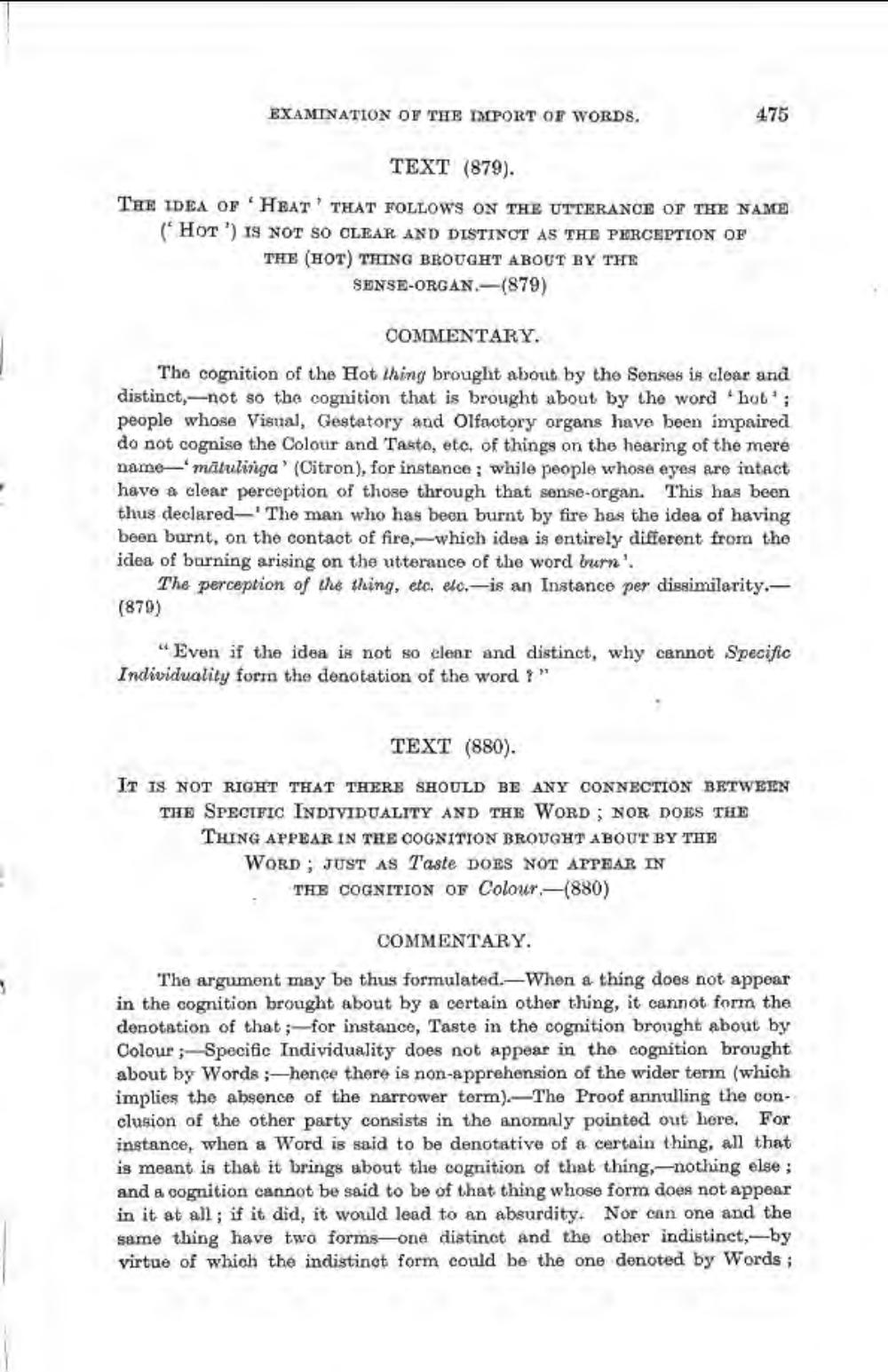________________
EXAMINATION OF THE IMPORT OF WORDS.
475
TEXT (879).
THE IDEA OF HEAT THAT FOLLOWS ON THE UTTERANCE OF THE NAME (Hor') IS NOT SO CLEAR AND DISTINOT AS THE PERCEPTION OF THE (HOT) THING BROUGHT ABOUT BY THE
SENSE-ORGAN -(879)
OOMMENTARY.
The cognition of the Hot thing brought about by the Senses is clear and distinct, not so the cognition that is brought about by the word "hob'; people whose Visual, Gestatory and Olfactory organs have been impaired do not cognise the Colour and Tasto, etc. of things on the hearing of the mere name-mabulinga' (Citron), for instance; while people whose eyes are intact have a clear perception of those through that sense-organ. This has been thus declared 'The man who has been burnt by fire has the idea of having been burnt, on the contact of fire, which idea is entirely different from the idea of burning arising on the utterance of the word burn'.
The perception of the thing, etc. etc.-is an Instance per dissimilarity.(870)
"Even if the idea is not so clear and distinct, why cannot Specific Individuality for the denotation of the word ?"
TEXT (880). IT IS NOT RIGHT THAT THERE SHOULD BE ANY CONNECTION BETWEEN THE SPECIFIC INDIVIDUALITY AND THE WORD ; NOR DOES THE THING APPEAR IN THE COGNITION BROUGHT ABOUT BY THE WORD; JUST AS Taste DOES NOT APPHAR IN
THE COGNITION OF Colour—(880)
COMMENTARY The argument may be thus formulated.—When a thing does not appear in the cognition brought about by a certain other thing, it cannot form the denotation of that;-for instance, Taste in the cognition brought about by Colour Specific Individuality does not appear in tho cognition brought about by Words ;-hence there is non-apprehension of the wider term (which implies the absence of the narrower term)-The Proof annulling the conclusion of the other party consists in the anomaly pointed out here. For instance, when a Word is said to be denotative of a certain thing, all that is meant is that it brings about the cognition of that thing,-nothing else ; and a cognition cannot be said to be of that thing whose form does not appear in it at all; if it did, it would lead to an absurdity. Nor can one and the same thing have two forms—one distinct and the other indistinct,-by virtue of which the indistinct form could be the one denoted by Words;




